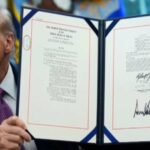Senate Majority Leader Chuck Schumer drew criticism from Republicans and Israeli officials after he publicly criticized Prime Minister Benjamin Netanyahu’s handling of the conflict in Gaza. Schumer called for Israel to hold new elections, a move that was seen as breaking the unwritten rule against interfering in a close ally’s electoral politics. This stance was met with outrage from those who believed Schumer’s comments were inappropriate and damaging to the relationship between the United States and Israel.
Republicans were quick to voice their disapproval of Schumer’s comments, with some accusing him of overstepping his role as a political leader. They argued that Schumer’s remarks could harm the long-standing alliance between the United States and Israel, as well as undermine Israel’s ability to defend itself against ongoing threats. Israeli officials also expressed their outrage at Schumer’s statements, viewing them as an unwarranted intrusion into their country’s political affairs.
The criticism of Schumer’s comments highlights the sensitive nature of relations between the United States and Israel, two key allies in the Middle East. The longstanding partnership between the two countries has been built on a foundation of shared values and mutual support, making any perceived interference in Israel’s internal affairs a highly contentious issue. Schumer’s call for new elections in Israel was seen as particularly provocative, as it challenged the legitimacy of Netanyahu’s government and could potentially destabilize the political landscape in the region.
Schumer’s remarks also reignited debates over the appropriate role of American politicians in shaping foreign policy decisions, particularly when it comes to issues as complex and volatile as the Israeli-Palestinian conflict. Some critics argued that Schumer’s comments reflected a broader trend of increasing polarization and politicization of foreign policy issues, which could have far-reaching implications for US relations with key allies around the world. Others defended Schumer’s right to express his opinions on international affairs, citing the importance of open dialogue and debate in shaping US foreign policy.
In the wake of the backlash against Schumer’s comments, the Senate Majority Leader faced pressure to clarify his stance on Israel and the conflict in Gaza. Schumer reaffirmed his support for Israel’s right to defend itself against aggression, while also emphasizing the need for a peaceful resolution to the ongoing conflict. Despite the controversy surrounding his initial remarks, Schumer’s commitment to upholding the US-Israel alliance remained unwavering, underscoring the complex dynamics at play in the relationship between the two countries. As tensions continue to simmer in the region, the fallout from Schumer’s comments serves as a reminder of the delicate balance that must be maintained in navigating the complex geopolitical landscape of the Middle East.









